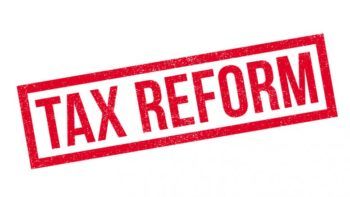What Impact the Tax Reform has on Franchising


The upcoming tax reform is certainly catching everyone’s attention and has been front and centre in the news. The question is how will this tax reform affect the franchise and small businesses in the U.S.
The wide sweeping repeal of tax law has what most business people would consider extremely positive potential effects on the business community and as a result positive effects on the consumers. The thinking is that more money in people’s pockets equates to more spending more job growth and more opportunity for everyone. Regardless of political stances, this formula sounds very good in theory.
Unlike many personal tax exemptions which will expire in a few years, most business reforms are permanent and will have lasting effects. Corporate tax rates today vary from 15% to 39%. For this reason, many businesses in certain cases refuse to expand and increase their profitability with an increasing tax burden. This is also the supposed reason why companies like Apple refuse to bring their profits into the United States and keep funds overseas in more tax-rate-friendly environments.
The new corporate tax rate is set at a flat 21% rate which makes for an attractive way for businesses to invest in their business grow and expand their businesses in the U.S. In addition, Trump has suggested that he will work towards a one-time tax credit for companies like Apple, Microsoft and Google to bring these funds back into the United States and invest in business, jobs and other economy-boosting elements.
With this drop in the corporate tax rate, in order to keep uniformity between personal and business rates, there is a 20% deduction against individual tax rates. There are limitations to this deduction based on income levels, but the end result is a significantly greater degree of attractiveness for individuals to start a business and take the first step into entrepreneurship.
The threshold limit of $315,000 for married couples filing jointly is most likely above what the large majority of these small business owners make in income meaning that the tax code is simplified and more understandable.
What many maybe don’t realize is that the majority of business growth in the U.S. is through what is defined by the SBA as Micro-companies. These are businesses with 10 employees or fewer, they are typically operated by a person who works in the business every day.
This trend started in 2014 when the number of new businesses in the U.S. finally turned to growth whereas in the decade before the number of new businesses shrunk considerably. This new tax reform should drastically increase this trend with more entrepreneurship and more job creation.
The SBA presents that an estimated 67% of all new jobs created since the recession have come from these small firms. Once again, this new tax reform only supports and should expand this trend of new hiring and business growth.
And how does this affect the franchise market and what impact will these tax reforms have on the franchise industry? The short answer is that all effects seem to be very positive. Franchises by nature are generally in the small firm category and would be considered owner-operated in most cases.
This tax reform will create yet more incentives to invest in a franchise and open a business. The traditional value proposition of a franchise investment remains the same where a new business owner benefits from business plans, training, support and a proven model, but in the end, the franchisee is still a small business owner.
Only time will tell how much of an impact this tax reform has on franchising, but from most perspectives, this should be an excellent starting point for a strong growth curve in the franchise market.
- How does the Stark Law work in Franchise Business Models: Legal Considerations and Compliance - January 25, 2024
- Jollibee Franchise: A Flavorful Journey Through History - January 25, 2024
- How Franchisors Tackle Daily Challenges in Business Management - January 23, 2024

